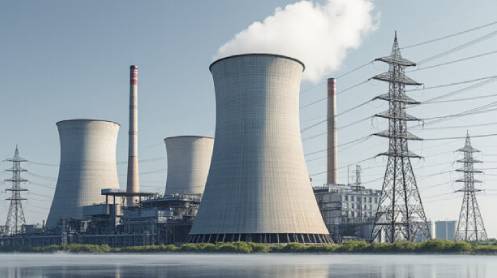ISLAMABAD: In a serious warning to Pakistan’s power sector, the Port Qasim Electric Power Company (PQEPC) has cautioned the government that it may be forced to suspend operations at its 1,320 MW coal-fired power plant due to the Central Power Purchasing Agency-Guarantee (CPPA-G)’s persistent failure to meet financial obligations under the Power Purchase Agreement (PPA), sources confirmed.
In a letter addressed to Minister for Power Awais Leghari, Finance Minister Muhammad Aurangzeb, Planning Minister Ahsan Iqbal, and the Chairman of the China-Pakistan Economic Corridor (CPEC) Authority, PQEPC Chief Executive Officer Wang Dongfeng warned that continued non-payment had pushed the company to a critical point.
According to the letter, outstanding dues owed to PQEPC have ballooned to Rs75.5 billion as of October 6, 2025, with payment delays now exceeding six months. While acknowledging the government’s partial payments to Independent Power Producers (IPPs), Dongfeng said the growing arrears have created severe financial stress for the company.
“Project shareholders and sponsors from China and Qatar have expressed serious dissatisfaction and requested urgent government intervention,” Dongfeng stated. “We hereby notify that the current dues entitle PQEPC to suspend plant operations in accordance with Section 9.10 of the PPA, without incurring any liquidated damages.”
The CEO underscored that the Port Qasim plant—a flagship CPEC project—has consistently supplied clean, reliable, and cost-effective power to the national grid and maintains a lower Energy Purchase Price (EPP) compared to Residual Fuel Oil (RFO) and RLNG-based plants.
“A project suspension would be a lose-lose scenario for all parties,” he warned, urging authorities to immediately release funds to CPPA-G to prevent disruption of electricity supply and potential defaults under loan agreements and Pakistan’s sovereign guarantees.
In August 2025, the government released Rs100 billion to about 16 Chinese CPEC power projects, including coal-fired plants, ahead of Prime Minister Shehbaz Sharif’s visit to China. Despite this, Chinese IPPs continue to demand payment of remaining arrears, which reportedly total around Rs300 billion.
To address the issue, the government is developing a framework to request Chinese IPPs to waive Late Payment Surcharges (LPS) before releasing funds from a Rs1.225 trillion financing facility secured from 18 banks. Disbursement, however, may take three to four months, delaying relief to CPEC power producers.
Chinese companies have indicated that decisions regarding LPS waivers must ultimately be approved by Beijing, underscoring the diplomatic and financial sensitivity of the issue.
The Port Qasim plant’s potential shutdown poses a significant risk to Pakistan’s already strained power supply, adding pressure on the government to urgently resolve the payment impasse.
Story by Mushtaq Ghumman







